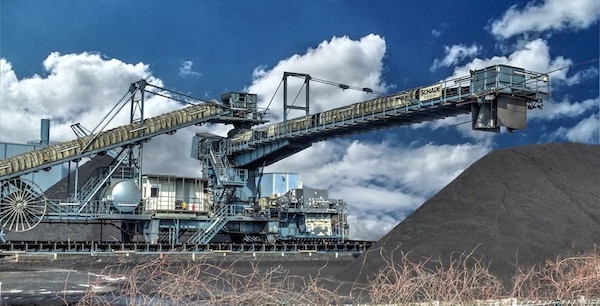
A new study by Oxford University revealed the enormous challenge facing power companies in the EU if they delay taking climate action.
Using company data from 29 of the largest energy suppliers in Europe and the UK, the researchers, led by Conor Hickey, estimated that their potential total loss of investments amounts to €114bn.
This figure represents what environmental economists call a “debt trap.”
Investments in large oil, coal, or gas projects are costly. Historically, fossil-fuel companies have borrowed most of the capital needed upfront, expecting to pay off the debt with future proceeds from selling fossil fuel-generated electricity.
But due to climate change, infrastructure has to be replaced before debt has been repaid. This means debt becomes ‘stranded’ and has to be financed by other means.
These so-called ‘stranded assets’ represents one of the fundamental challenges confronting large energy companies in the age of climate change. The business is based on the expectation of future income – an income that now might never materialise.
It explains why shares of energy companies have been the worst-performing in the Morgan Stanley index for over a decade, resulting in a loss of over half their value (from €1 trillion to €500bn) since their peak in 2008.
Previous research by the NGO Corporate Europe showed that energy companies continue to lobby to to maximise the lifespan of fossil-fuel infrastructure.
According to author Hickey, they should instead start investing in sustainable energy now to create different income streams: “As it stands, firms can still finance the transition, but even a delay of five years could cause serious financial trouble.”
The problem, Hickley said, comes in two forms.
First, they will have less time to pay off the debt. According to EU estimates, the power system could reach net-zero emissions between 2040 and 2045. This gives energy suppliers a window of 20-25 years to replace all fossil fuel infrastructure. An early start means the investments can be spread out over a longer period.
But perhaps more importantly: a company that delays investments in new green energy and instead relies on heritage fossil-fuel infrastructure is less attractive to investors.
This is because the ability to finance new green projects depends on a company’s balance sheet strength.
For example, if a company has extensive debt and many fossil-fuel assets that have lost a large proportion of their value. In that case, their credit rating will plunge, causing new investments in green technology to become more expensive because lenders will charge higher interest.
Companies can counter this doom loop by investing in green energy early: “Energy businesses already are very fragile, but electricity demand will grow by 280 percent by 2050,” said Hickey. “This is a huge opportunity for these companies.”
This study shows that the 29 biggest energy companies in Europe, representing about 51 percent of the energy market based on coal, gas and oil, have lost much of their financial clout in recent years.
But it also shows that based on expected income data available today, most of these companies can still afford to meet EU climate targets by themselves.
Blijf op de hoogte met de nieuwsbrief. Meld je hier aan.
( Je kunt ons ook steunen door lid te worden of te doneren )









